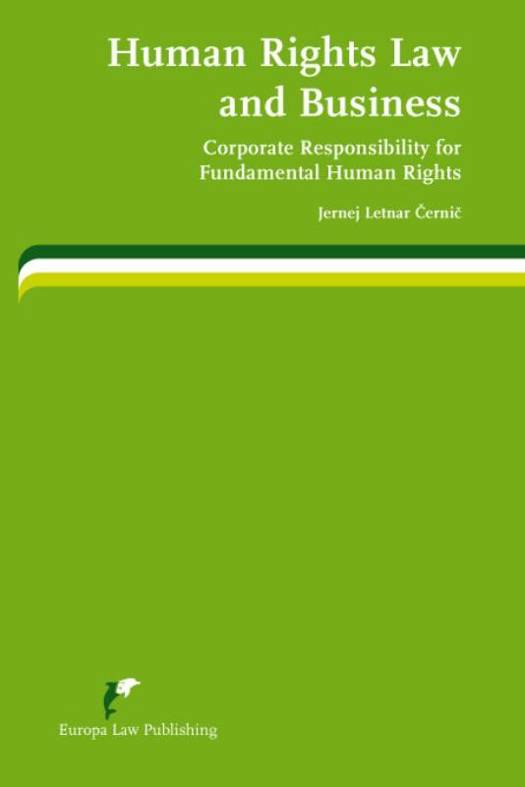
Bedankt voor het vertrouwen het afgelopen jaar! Om jou te bedanken bieden we GRATIS verzending (in België) aan op alles gedurende de hele maand januari.
- Afhalen na 1 uur in een winkel met voorraad
- In januari gratis thuislevering in België
- Ruim aanbod met 7 miljoen producten
Bedankt voor het vertrouwen het afgelopen jaar! Om jou te bedanken bieden we GRATIS verzending (in België) aan op alles gedurende de hele maand januari.
- Afhalen na 1 uur in een winkel met voorraad
- In januari gratis thuislevering in België
- Ruim aanbod met 7 miljoen producten
Zoeken
Human Rights Law and Business
corporate Responsibility for Fundamental Human Rights
Jernej Letnar Cernic
Paperback | Engels
€ 63,50
+ 127 punten
Omschrijving
Over recent decades, globalisation has stirred up a number of positive and negative developments in national and international environments. An important feature of globalisation is the rise of the economic, social, cultural and political power of corporations. While corporate activities may positively contribute to the livelihoods of individuals, communities and societies, a number of allegations have been made that corporations have been involved in systematically violating human rights. In contrast, only a limited of number of claims have been successfully brought against corporations or their directors and employees. As there is an urgent need for practical and victim-oriented solutions in the modern world in the area of human rights and business, this study argues that corporations have normative obligations in relation to fundamental human rights, around which there possibly appears to exist a value consensus across different cultures and societies around the world.
This study argues that the normative thrust of corporate human rights obligations derives primarily from national legal orders and only secondarily from the international level, whereas both draw their foundations from an international value system. Moreover, corporate human rights obligations may also derive from corporate unilateral commitments. The study argues that corporations should be held accountable for violations of human rights law.
Equally important to identifying corporate obligations is the question of how one can respond to corporate human rights violations. As international mechanisms are often ineffective and sometimes inexistent, the provision of effective remedies for victims of corporate human rights violations, the book argues, rests within national normative frameworks.
This study argues that the normative thrust of corporate human rights obligations derives primarily from national legal orders and only secondarily from the international level, whereas both draw their foundations from an international value system. Moreover, corporate human rights obligations may also derive from corporate unilateral commitments. The study argues that corporations should be held accountable for violations of human rights law.
Equally important to identifying corporate obligations is the question of how one can respond to corporate human rights violations. As international mechanisms are often ineffective and sometimes inexistent, the provision of effective remedies for victims of corporate human rights violations, the book argues, rests within national normative frameworks.
Specificaties
Betrokkenen
- Auteur(s):
- Uitgeverij:
Inhoud
- Aantal bladzijden:
- 328
- Taal:
- Engels
Eigenschappen
- Productcode (EAN):
- 9789089520814
- Verschijningsdatum:
- 1/07/2010
- Uitvoering:
- Paperback
- Afmetingen:
- 160 mm x 240 mm
- Gewicht:
- 617 g

Alleen bij Standaard Boekhandel
+ 127 punten op je klantenkaart van Standaard Boekhandel
Beoordelingen
We publiceren alleen reviews die voldoen aan de voorwaarden voor reviews. Bekijk onze voorwaarden voor reviews.









